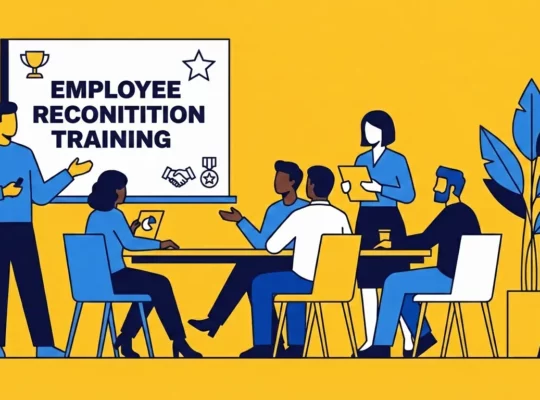Conflicts between co-workers are almost inevitable events in a professional setting. Whether due to personality differences, differences of opinion, or competition for limited resources, there are many reasons that can lead to conflict in the workplace. This situation requires employers and managers to master a number of conflict management techniques. Four of the most effective techniques and methods for resolving conflicts between co-workers are presented in this article.
Table of Contents
1. Using humor to resolve conflicts between co-workers
Resolving a conflict with humor is an innovative approach and is often underestimated by managers who ask themselves the usual question about conflict situations at work: How to react?
Indeed, humor can serve as a powerful tool to defuse tensions, promote communication, and strengthen relationships between people in conflict. In fact, humor helps to relax the atmosphere. Conflict situations between co-workers can be a source of great emotional tension, which can make constructive communication difficult. Introducing a touch of humor, when appropriate, can help ease this tension, creating an environment more conducive to the peaceful resolution of the conflict.
Humor can also facilitate communication itself. By expressing concerns or disagreements in a humorous atmosphere, it is often easier for the parties in conflict to listen to and accept criticism. Humor can be a non-threatening way to raise issues without triggering defensive reactions.
However, it is important to note that humor should be used with caution in managing workplace conflict within HR. It is not always appropriate in all situations, and it is essential to consider the sensitivity of the people involved.
The goal of humor in conflict management should be to foster understanding and resolution, not to minimize or ridicule the concerns of others.
2. The open-door policy to make communication possible at any time
The open-door policy is a powerful technique for resolving conflicts between co-workers. It involves encouraging the team to engage openly with management or the manager, creating an environment where concerns, ideas, and issues can be shared without fear of reprisal. This management method emphasizes open communication and accessibility, offering many advantages for the management of conflict situations between co-workers.
As a first step, the open-door policy helps avoid a bad atmosphere at work by creating a safe space for the team for employees to voice their concerns and grievances. When conflicts arise between colleagues, they can approach management or supervisors with confidence, knowing that their voices will be heard. This proactive approach to conflict management helps ease tensions before they become more important, saving time and preventing conflicts between co-workers from escalating.
The open-door policy also promotes a sense of fairness and equality among the company’s employees. All employees of the company, regardless of their positions, have the same access to management and the opportunity to resolve conflicts. This helps prevent power imbalances between employees that can aggravate conflicts between co-workers. It also ensures that the concerns of every employee in the company are taken seriously.
In addition, by addressing conflict quickly and openly, the open-door policy helps prevent workplace stress and create a healthier work environment. A reduction in stress and tension at work leads to greater job satisfaction and improved overall morale for the team. The company’s employees feel valued and supported, which reinforces their commitment to the company.
3. The appointment of internal mediators to “air dirty laundry in the family”
Internal mediation between employees, as a conflict management strategy, offers several significant advantages in managing conflicts between co-workers. Indeed, it participates in the installation of a sense of trust and camaraderie within the team. Colleagues often feel more comfortable discussing their conflicts with peers who understand their work environment and its dynamics.
This level of comfort encourages open and honest communication, making it easier to identify underlying issues and find common ground. Internal mediators, chosen for their exceptional communication skills and impartiality, bring a unique perspective to conflict resolution between co-workers. Their familiarity with the company’s culture and policies allows them to offer targeted solutions tailored to the specific needs of their colleagues. This approach can therefore lead to more effective and sustainable resolutions.
In addition, internal mediation between employees gives them the power to play an active role in managing their conflicts. Rather than relying solely on management or human resources interventions, employees are encouraged to work collaboratively with their peers to find solutions. This employee empowerment not only speeds up the process of resolving conflicts between co-workers but also boosts the morale of the company’s employees and their self-esteem, as they feel more in control of their professional relationships.
In addition, mediation between employees can help resolve conflicts quickly, preventing them from escalating and further disruption. By intervening at an early stage, internal mediators can prevent the spread of tensions and their impact on team dynamics, thus ensuring that productivity is maintained at work.
In addition, the benefits of appointing internal mediators are increased tenfold when they are added to the benefits of the quality of life at work questionnaire.
4. The use of professional mediators to seek expert help
Professional mediators are external and impartial experts who can play a vital role in resolving conflicts in the workplace between colleagues.
One of the main advantages of using these professionals is their neutrality. Unlike in-house staff, professional mediators have no personal interest in the outcome of the conflict. They bring an unbiased perspective to the table, ensuring that both parties involved are treated fairly throughout the mediation process. This impartiality is essential to building trust and ensuring a fair resolution.
In addition, professional mediators are competent in techniques for managing conflicts between co-workers. They have a deep understanding of mediation processes and strategies, which allows them to guide parties in conflict through structured and productive dialogue. By facilitating open and respectful communication, professional mediators help parties better understand each other’s perspectives and interests, paving the way for mutually acceptable solutions.
Confidentiality is another key benefit of professional mediators. Company employees can freely discuss their grievances and concerns knowing that their conversations will remain confidential. This confidentiality encourages individuals to be more open and honest during the mediation process, which leads to more effective conflict resolution outcomes and a healthier work environment.
In such a context, employees are more likely to leave favorable reviews about the company on a trusted employee review platform. These opinions are in the eyes of the public proof that the company is serious and concerned about the work environment within it and the well-being of its employees. It is committed to managing potential conflicts at work between colleagues.
FAQs
1. How can humor help resolve workplace conflicts?
- Humor can defuse tension by creating a relaxed atmosphere, making it easier for colleagues to communicate.
- It allows issues to be raised in a non-threatening way, reducing defensiveness and fostering understanding.
- However, humor must be used carefully to avoid offending or trivializing the conflict.
2. What are the benefits of an open-door policy for conflict resolution?
- Encourages open communication, allowing employees to share concerns without fear of reprisal.
- Promotes fairness by ensuring equal access to management for all employees.
- Helps prevent conflicts from escalating by addressing issues early.
- Creates a healthier work environment, reducing stress and boosting morale.
3. When should a company consider using professional mediators?
- When conflicts require impartial expertise to ensure fairness and neutrality.
- For complex disputes that benefit from structured and skilled facilitation.
- When confidentiality is crucial to encourage honest and open discussions.
- To demonstrate a company’s commitment to employee well-being and a positive workplace culture.





